Leftist presidential candidate Gustavo Petro and his running mate Francia Márquez were expected to make history on May 29th by becoming shoo-ins for the run-off election. However, despite the strong first-round showing they are now expected to lose the June 19th run-off against a populist right-wing candidate. What happened? Colombia expert Gimena Sánchez of the Washington Office on Latin America joins Greg Wilpert on theAnalysis.news.
Greg Wilpert
Welcome to theAnalysis.news. I’m Greg Wilpert. The South American country of Colombia held a historic presidential election on May 29. The leftist candidate, Gustavo Petro, came out ahead with 40.3%. His closest challenger, the right-wing populist Rodolfo Hernández, obtained 28.2% of the vote. The real upset in this election, though, seems to have been the fact that Hernández beat the traditional conservative, Federico Gutiérrez, who obtained 24% of the vote. Colombia now faces a second-round vote between Petro and Hernández on June 19.
Joining me to analyze the results of what this means for Colombia is Gimena Sánchez. She’s a Colombia human rights advocate at the Washington Office on Latin America in Washington, DC. Thanks for joining me, Gimena.
Gimena Sánchez
Thank you, Greg, for having me.
Greg Wilpert
So leading up to the election, polls predicted that Petro would get roughly 40% of the vote that he ended up with on election day. However, Hernández was not expected to make the runoff, according to the polls. It was generally assumed that Gutiérrez, a traditional conservative candidate, would end up in the runoff. So what happened, and how did Hernández pull ahead? Who is he anyway? What is his background, and who does he represent?
Gimena Sánchez
Well, yes, you’re right in saying that Rodolfo Hernández, the former Mayor of Bucaramanga, a self-made real estate mogul with a very colorful personality and who basically ran his campaign through social media and refused to participate in most of the actual formal political debates in the last week before the election, all of a sudden started to get a lot of attention and managed to get the second spot in the first round of the presidential elections. A surprise, I think, to almost everyone.
What does this mean? Well, first, that Colombians want a change. They are also tired of the polarization that has overtaken the country since the Peace Accord in 2016. Also, they are unhappy with the way the establishment has governed the country to the point that they’re willing to vote for a person who is a crapshoot in terms of what his actual positions are and who is rather dictatorial and kind of problematic. He doesn’t seem to play by any of the rules of engagement, coalition building, or anything of that nature. He refuses to make alliances with anyone and appears to have run the mayor’s office depending on what he felt that day. He was even violent towards people who criticized him.
This is not a surprise because a year ago, Colombia had a national civic strike, which came out of the lack of effective governance of the ruling party, the Democratic Center, and its inability to connect with most of the population or care about their socioeconomic interests. The deepened inequality that happened during the pandemic, as well as the corruption of most of the funds that were sent out to try to alleviate that pandemic, mixed with this backwardness in terms of implementing the Peace Accord, resulted in Colombia seeing a rising number of massacres, an increased amount of internal displacement, and a very high rate of killing of its social leaders. This made people really unhappy with the status quo.
So what was the change candidate, which is Gustavo Petro from the Left who ran the last time and lost to the current President because the Right unified against that other President, has now become the more established candidate. We have this outsider candidate being the anti-establishment candidate, but with a very different point of view and way of doing politics, that’s completely unheard of in Colombia.
So, yes, it was an indication that the traditional political parties in Colombia aren’t meeting people’s needs and that people are fed up with that. Yes, it shows that people are tired of the Left/Right discourse and the attacks back and forth. It also shows that Colombia may end up, in some ways, like the United States and like [Jair] Bolsonaro’s Brazil. People are so fed up with the establishment that they’re willing to put in a wild card to govern them because they’re so unhappy with the way their situation has been going.
Greg Wilpert
I want to turn a little bit later to what we might expect from a Hernández presidency. Before we do that, I want to turn to Gustavo Petro now. He’s a longtime fixture in Colombian politics, a former member of the M-19 guerrilla group that became a political party. He is currently the Mayor of Bogotá. I’m wondering if you can say, and you also mentioned that he ran for President in 2018 and lost back then. Tell us a little bit more about his background, what he represents and what he was proposing in this election? What would he do if he were to be elected?
Gimena Sánchez
Gustavo Petro is very intellectual and in tune with the realities of a Colombia candidate, someone with a very elaborate plan. A priority of the plan would be to prioritize and implement the 2016 Peace Accord that has been truncated by the [Iván] Duque administration. They put together a parallel project called Peaceful Legality, which wasn’t what was agreed to. He is a candidate that is interested in deepening democracy. He’s interested in figuring out how Colombia can change its economic model in a way that the wealth of the country can be distributed more broadly. All of the conflicts in Colombia have been, at the root cause, due to inequality and distribution of the country’s wealth from land and what have you, very badly, and only in the hands of certain people.
So in that vein, he’s been proposing sustainable economies, reevaluating the agreements made commercially, not just with the United States but the 18 other free trade agreements. He is also taking advantage that Colombia is a country that is incredibly biodiverse and pluri-ethnic. Using that potential of Colombia, that’s always been there, not so that multinationals can just come in and take what they need and a few elites get some money out of that in the country, but so that Colombia itself can be a real superpower in terms of the environment and what have you. He would also open up relations with the neighboring country of Venezuela, something that has been a big problem under Duque.
The Duque administration joined forces with [Donald] Trump and now with [Joe] Biden to isolate and attack Venezuela. The situation is very tense. In the border area between Venezuela and Colombia, which is a very long, very porous border, you have an incredible humanitarian crisis. It’s not just Venezuelans crossing over, but in Colombia, along the border, you have at least 13 different illegal armed groups operating on the Colombian side. This is generating the displacement of Colombians. This situation hasn’t been able to be addressed properly because both countries are not talking to each other, and that’s completely irrational. It’s also been a real problem for the economy of the two nations because there is a border economy. Colombians are used to going back and forth between Venezuela and the State. He wants to open up relations to figure out how to address all this. Not just have the debate on Venezuela be focused on what the United States wants it to be.
The other thing that he’s going to, or plans to do, is to reopen dialogue with the second guerrilla group, the National Liberation Army, the ELN. Duque campaigned on tearing up the Peace Accord, which he’s managed to do to a certain extent. However, despite that, most of Colombia has fought for the Peace Accord, and so has most of the international community, so it’s not dead. He’s managed to not make it what it should be and to deviate funds elsewhere. He also, when he got into office, was like, we’re not negotiating with ELN unless they follow a whole bunch of criteria that they could never meet and that they would never meet. So that, in and of itself, closed that process off, and that’s been terrible.
It’s been terrible for people along the border, especially in Arauca and Catatumbo, where the ELN has strongholds. It’s been a massive problem all along the Pacific, especially in Chocó, where you have mass recruitment and where you even have, to the point, 30 or more Indigenous youth who committed suicide not to be recruited by the ELN in those areas. So that group had, for the first time in its history with Colombia, had the least amount of casualties against civilians and had lessened the impact of conflict because there was a Peace Accord that was being negotiated with the FARC [Revolutionary Armed Forces of Colombia]. They had a bilateral agreement for a while to have a ceasefire.
There was a great expectation that the next step would be okay, let’s do a dialogue with the ELN. They got to the point where they even had a whole agenda, and Duque completely crashed and burned that. Their reaction has been to up their attacks, but then the Colombian military’s reaction has been to up their attack as well in those areas. The impact on people in those areas, mostly Afro’s, Indigenous, and [inaudible 00:11:26], has been absolutely terrible. So Petro would reopen that agenda. Just opening the agenda would alleviate harm to a lot of people. He would most likely support these so-called humanitarian accords, which are basically regional accords, to ask all of the groups to keep the civilians out of the conflict—something which the Duque administration has refused to do.
I think that his policies would be more humanistic and more willing to take into account what is known as the others or the outer periphery of Colombia. The Colombia that’s not the technocrats, bureaucrats, and the urbanized people in Bogotá.
Greg Wilpert
I was wondering if you could say a couple of words about Petro’s running mate, Francia Márquez? Who is she, and what did her presence on the Petro ticket mean for the election?
Gimena Sánchez
Okay, so first is background. For the past 20 years that I’ve worked on Colombia, I’ve worked on the Afro-descendant issue. WOLA has had a working relationship helping the community councils, the black communities process, which is the organization that Francia Márquez comes from, and many other Afro Colombian organizations with their work with the U.S. Congress. We’ve known Francia for at least 15 years. It’s amazing to see someone as amazing as her in this position and with the real possibility of becoming vice-President in Colombia. Colombia is, I will always say, at least 100 years behind the United States when it comes to racial relations. She’s broken many barriers through this.
Francia was a social leader from Suarez, Cauca. Northern Cauca is a conflicted region of the country. Her community has collective land. However, they were never formally recognized because Law 70, which is the law of the black communities that grant collective titles. The titles that were granted at the time were mostly Chocó and other areas, not as far South as Cauca, although that’s a big mistake. There is a huge Afro descended population in Northern Cauca, and they’ve been there since slavery.
This made it easy for outsiders to come in and claim that those lands were theirs. This is precisely what happened in her community. A third party who doesn’t even live in the area intervened, saying that those lands were theirs. So all of the Afro-Colombians living there should just be evicted. So they got a title illegally. Francia fought this. She was— obviously, not her alone because the thinking in the Afro-Colombia community is always collective. She was a major player in stopping the eviction of her community in La Toma. This was her first sort of claim to fame. After that, she started organizing black women from Northern Cauca to process the security and other conditions in Northern Cauca, including running a march from Cauca to Bogotá, where the ladies then took over one of the ministries to get attention. All of that led to her getting wider recognition. She won the Goldman Environmental Prize, which is a big deal, and put her on a higher level.
After that, she ran for Congress and got a very good number of votes, and then she was running for President. In the primary consultations that happened on March 13, at the same time they had the congressional elections, she got so many votes that it became obvious that she should be Gustavo Petro’s running mate. Francia comes from a very different background than Gustavo Petro. She comes from the struggles of the Indigenous and Afro-Colombia in the Southern part of the country. She comes from the struggles of the gold miners, the ancestral gold miners, which is what many Afro-Colombians have done for generations, which is a very different agricultural tradition. That’s what makes her so open to so many people because she represents the struggles that many Colombians, not just Afro but others, have had to face. She also comes with a very clear feminist agenda and has the backing of most of the feminist organizations in the country. She speaks very clearly about the intersectionality between racism, patriarchy, misogyny, and the challenges of being a solo mom like she was from a very young age as a teenager.
I think that debate, that perspective in these presidential elections for the first time that we’ve ever heard them in the history of Colombia. The situation about the women, the situation about rural women, the situation about rural people, in general, have never been a part of the debates or of interest on the national stage in Colombia. She’s already done an incredible contribution in diversifying the debate and bringing to the fore a lot of issues that are at the heart of the problems and conflicts in Colombia, but the political and economic elites would rather not talk about them.
Greg Wilpert
Yeah, it seems pretty amazing. As I mentioned before, though, Petro was running as a front runner, and now it looks like he’s going to have a real uphill battle trying to win the presidency. So I’m just wondering what happened in this campaign? Was it a fair election and a fair campaign? What’s your evaluation?
Gimena Sánchez
There were lots of concerns going into the presidential campaign because the congressional elections passed fraud, and there were 390,000 votes that were just found after the first initial report. Yes, that was normal in the process in the sense that they were eventually counted, but it was abnormal in that Colombia, you don’t usually have those number of votes disappear and have to have people fighting for the votes to be counted. It usually runs very well, very smoothly.
The normal problems in Colombia are those of violence, in which there was quite a bit of violence. Not in the case against the [inaudible 00:18:47] as much as the victims that were running for the peace seats in the most conflicted areas. These are seats that were set up by the Peace Accord, but that’s usually the problem. This is what everybody feared going up to this presidential election because he had an arms strike by the Gulf clan paramilitaries. You had an armed strike by the ELM gorillas, and so anything could have happened, right.
No, surprisingly, it went very smoothly. I think the reason was that the congressional elections didn’t go smoothly, but also because he had one of the most massive observations for multiple observation missions. Not just the Misión de Observación Electoral, which is like the civil society observation mission in Colombia, but also internationally. There were lots of eyes and ears everywhere that did not permit as much of that to happen. That said, you did have a certain amount of vote-buying. You did have pressure for people to vote for certain candidates, saying that if they don’t vote, they’re going to lose their jobs. A lot of it was pre-voting, and it was a manipulation and false information. It had tremendous disinformation that went around saying all sorts of lies and things of all sorts, mostly focused on Gustavo Petro and Francia Márquez. You had a lot of racism. The racist barometer counted about over 560 instances of racism against Francia Márquez.
So it was surprising that it went so well. It was also surprising that the level of blank votes because in Colombia can vote blank as a protest, was not super high. So that was also surprising. The challenge now is the losers. They are all now indicating who they’re going to vote for and who their base should vote for.
While Petro won with a huge landslide, and he won more votes than he did the other time, he’s been going in this trajectory of winning if those other losers have their voters vote for Rodolfo Hernández, it’s going to be a very tight race. Already some of the initial polls are saying, should that be the case, if the elections were today, he’d be winning by 52%. This is a very dangerous situation because, as I mentioned earlier, the society is incredibly polarized. It just went through these mass demonstrations. So you have on the side of more of the center and the Left the ability to paralyze the country should there be discontent with the results of the elections, and that could be the case if it’s very close. Then you have on the other side the capacity of much violence or other sorts of maneuvers should Rodolfo Hernández not win, and that other side feels that it can’t.
Most of Uribismo, which is the right-wing in Colombia, has seen Rodolfo Hernández as their plan B. He wasn’t their first choice, but they’ve all immediately after he won, even the most radical right-winger is saying like, oh, but he’s a man who’s a businessman, and he wants order and security. So we’re all going to go behind him. Everybody vote for him because we can’t have Petro. Part of Fico [Federico Gutiérrez] their candidates failure was that his campaign was I’m not Petro, and Petro shouldn’t win. That did not work for them.
However, they’re transferring the energy, their support, and their political machinery behind Rodolfo Hernández. They think that Rodolfo Hernández is not going to touch their political and economic interests. So he may not have all of the points of view that he has, and it’s not clear what his points of view really are. Here’s what he says on social media, there’s some of his plans, but he’s kind of all over the place on things. So it’s unclear. It’s not just, oh, he’s conservative economically, and he’s socially progressive. We’re not really sure what his points of view are. There are lots of contradictions there. Even the main contradiction that his campaign is supposed to be about, anticorruption, when he’s being investigated for corruption. Okay, so this is what we’re dealing with.
I think what we’re mostly going to see is either a very close race where you might be within the margin of error, and then we may have a full-out situation of protests and even violence occurring in the country. Now, one thing that really concerns me about Rodolfo Hernández, aside from his violent style and misogynistic statements and not knowing where he stands, is that he said that he would use the figure of internal commotion should he need to. So already, he’s talking like a dictator, and he hasn’t even gotten into power, and that’s very problematic.
During the national strike in 2021, Duque used faculties for the city of Cali, where the defense, and the military took over for the police. It was brutal. You had massive massacres. You had more than 80 civilians killed. In some of the areas, because this was all videotaped by people on their phones, it seemed like a battle zone. Helicopters were flying overhead and were throwing things and throwing gases. It was a tremendously horrible situation. So we know that if should someone call any internal commotion or what have you, it would be incredibly detrimental to Colombia.
Greg Wilpert
Yeah, if you add the percentages that Hernández got and that Federico Gutiérrez got, it comes to 53%. So it does seem difficult if they all vote the same. The support for Hernández would make it difficult for Petro to win. One of the things that seem to strike me is if you look at the election turnout in Colombia, it generally tends to be pretty low compared to most countries which are around 55%. I’m wondering now, would it be possible— first of all, why is that? Why is it historically so low? Secondly, would it be possible or conceivable for Petro to mobilize nonvoters and thereby end up winning after all?
Gimena Sánchez
Okay, so the first question about why Colombians don’t all go out and vote. It’s really important to understand that one of the main reasons you’ve had various internal conflicts in Colombia and at least 13 different guerrilla groups over the years has been because it’s generally been two political parties that have handed power over to each other every four years. While there’s been a diversification of the number of parties in terms of that attitude of maintaining the status quo, the political-economic belief has not changed. It’s been incredibly difficult for the Left and for alternative and independent parties to get anywhere. It really hasn’t happened ever. Colombia has never had an alternative President. It’s never had a leftist President. All these years, it’s always been within that realm of the status quo.
So I think that has made people very indignant about politics and really not believing that their votes count. In many regions of the country where there’s been a high rate of vote-buying, or not directly the vote, but the campaigns usually consist of, I’ll give you a refrigerator if you vote for me or things like that. People really haven’t had the tradition of voting for conscious. So if nobody is offering anything, they ain’t going to vote. That’s why it’s been that situation.
Now, this changed a lot because of the Peace Accord. For the first time ever, you had first the FARC Party, now Comunes, have seats. Then you have these [inaudible 00:27:57] seats for the first time ever. More than that, it opened up the spectrum, and it made it acceptable. It opened up the door for it being acceptable for there to be many other candidates, which is partly why Petro has done so well. Some of the dislikes of the Comunes party has led people to be like, oh, well, Petro is not that bad. Comparatively speaking, it’s a different ideology and so forth.
Anyway, I think that it’s going to be difficult for Petro, but not impossible to get more of those people to vote. So I mean, if he goes for the strategy of getting the people who haven’t voted to vote and really gives an opportunity for the youth and what have you, he would have to have a similar strategy, so to speak, as Rodolfo Hernández of reaching them on their level and on their terms. He also needs to go to the whole part of the map in Colombia that didn’t vote for him.
So basically the Pacific and all around here are all Petro, plus [inaudible 00:29:07], and then here to here, here’s Venezuela, here to here it’s been, Rodolfo Hernández. So he needs to go out into those municipalities and have them get to know him better and understand what his policies really are. I think that misinformation probably has played a big role in those areas. I think that it’s possible, but it’s a completely different campaign strategy that he’s had now, which has been I would change the establishment.
Greg Wilpert
Just to conclude very briefly, how significant would you say would be a Petro victory were he to win on June 19 in the runoff?
Gimena Sánchez
Oh, I think it would be wonderful for Colombia. For the first time, try to have at least a presidency that cares about the rest of Colombia and the remote parts of Colombia, the victims of the conflict. A President who has thought about how you can do drug policy that is not militarized and security-focused, but rather taking into account what was agreed to in the Peace Accord, to begin with, in terms of developing the alternative economies in a lot of those areas, consolidating peace in those areas, but also having a harm reduction approach and that kind of thing. I think that Colombia needs to try that because everything else that it’s been doing all this time has not worked.
Especially in the past 20-plus years, where a lot of how it’s addressed narcotics has been heavily influenced by the United States and caused its own human rights violations, displacements and aerial fumigation of whole swathes of land, which all it did was push the coca leaf throughout the country, bringing with it a lot of problems to people. It’s time for it to have a different approach. So I actually think it would be good.
Now, how would the U.S. react to this? I’m not certain that it would be particularly positive. I mean, the U.S. has, and they were just celebrating their 200-year anniversary, Colombia-United States relationship with a big event yesterday in the Kennedy Center. It’s very clear that for the United States, Colombia is important because of what it gives it, in terms of first being its only ally, having its back on Venezuela, on Cuba, in multilateral including Israel. I mean, Colombia has, in terms of government, always put U.S. interests first in terms of the policies that it does in its own country. So a Petro would be completely unknown to that. Not that a Petro presidency wouldn’t have relations with the United States. I think it would, but it just might be different. It might be more like an AMLO-type situation where there are still some things that are the same and things that are adjusted with more of a sovereignty approach in Colombia. But we’ll see.
I think, you didn’t ask this, but I think Rodolfo Hernández would be a disaster. Why? Because one of the things that are clear is that he didn’t vote for the Peace Accord. He voted no in the [inaudible 00:32:42], and although he said yes, I would help with the Peace Accord, it’s not clear what that means. So did Duque, in the end. He was advancing the Peace Accord, but we see clearly that what he meant by advancing the Peace Accord was incredibly different than what the Peace Accord was. We’re at a point 5 years after this Peace Accord where it has so many problems. There have been so many former combatants killed and social leaders killed that somebody coming in with a different idea of what peace should be could be incredibly problematic for Colombia and really lead to the disintegration of that accord, which has been the most important thing that’s happened in Colombia in the past 60 years.
Greg Wilpert
Okay, well, we’re going to have to leave it there for now, but maybe we’ll have you back after the runoff election. We’re speaking to Gimena Sánchez, human rights advocate at the Washington Office on Latin America. Thanks so much, Gimena, for having joined me today.
Gimena Sánchez
Thank you.
Greg Wilpert
Thank you to our listeners and viewers for tuning into theAnalysis.news. If you like our videos and the podcast, please make sure that you visit theAnalysis.news website and make a donation there so we can continue providing the service. Also, don’t forget to subscribe to our YouTube channel and to the podcast. Thank you.
Podcast: Play in new window | Download | Embed
Subscribe Apple Podcasts | Spotify | Android | iHeartRadio | Blubrry | Email | TuneIn | Deezer | RSS
Never miss another story
Subscribe to theAnalysis.news – Newsletter
“Gimena Sánchez-Garzoli is the leading Colombia human rights advocate at the Washington Office on Latin America (WOLA). Ms. Sánchez is an expert on peace and illegal armed groups, internally displaced persons, human rights and ethnic minority rights. Her work has shed light on the situation of Colombia’s more than seven million internally displaced persons—as well as help expose the links between Colombia’s government and drug-funded paramilitaries. She is active in promoting labor rights and implementation of the U.S.-Colombia Labor Action Plan. In November 2012 the Colombian Senate presented WOLA with a human rights award for making a significant contribution towards advancing labor rights in recognition of Ms. Sánchez’s work. She’s received numerous awards for her work on behalf of ethnic minorities including in 2014 by the DC Mayor’s Office and 2015 the Catholic Diocesis of Quibdó.”
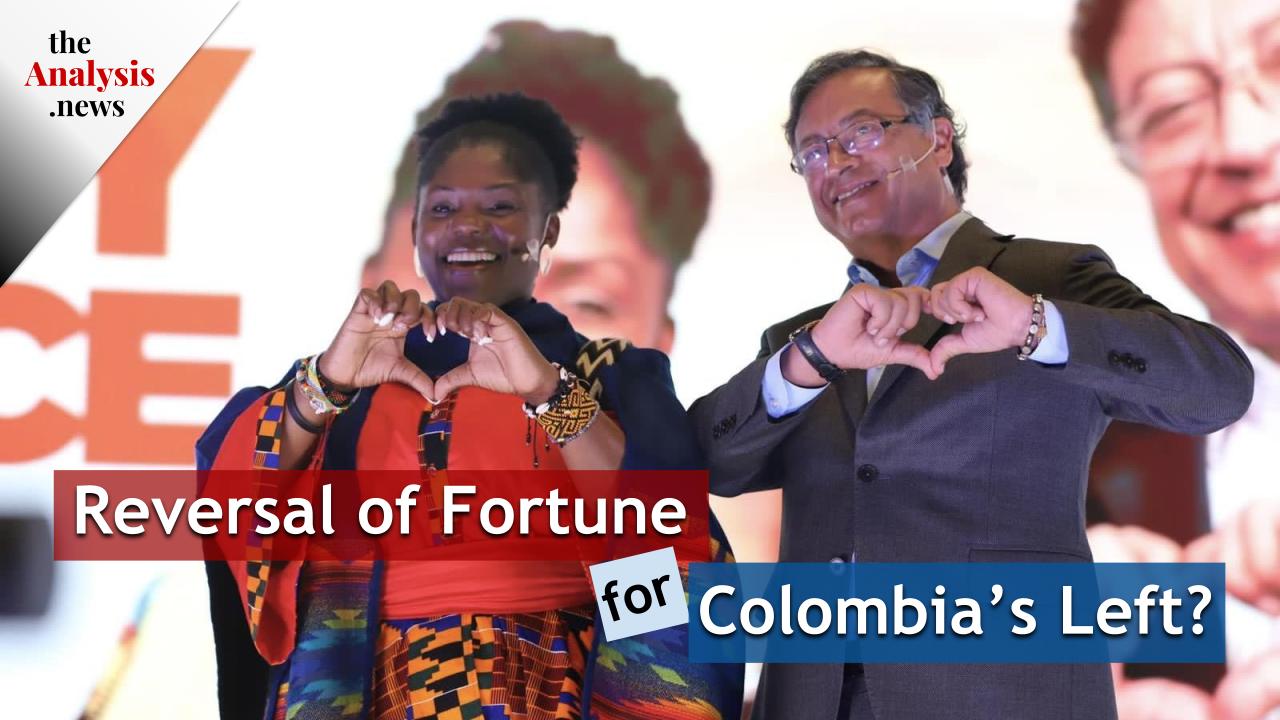
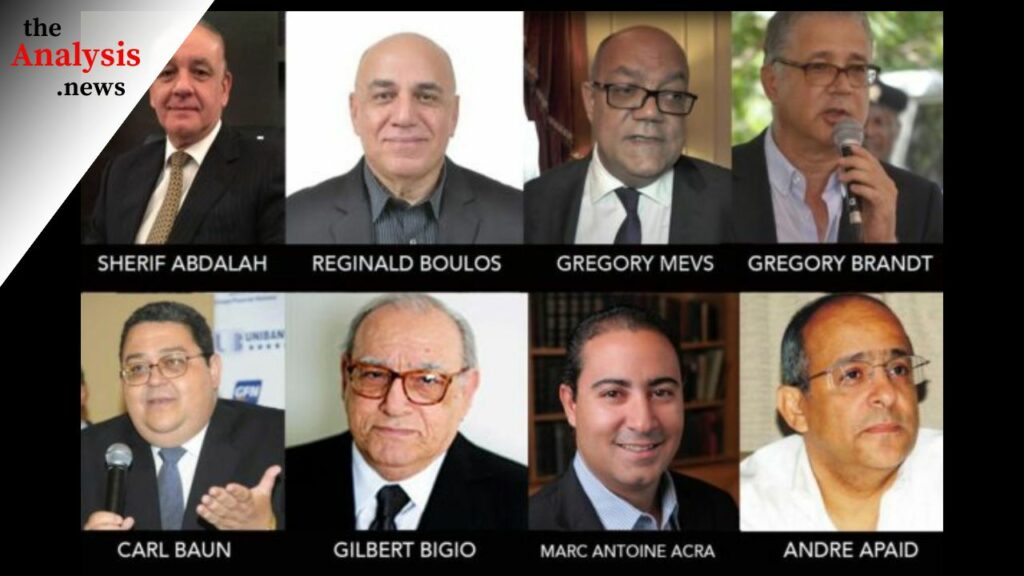
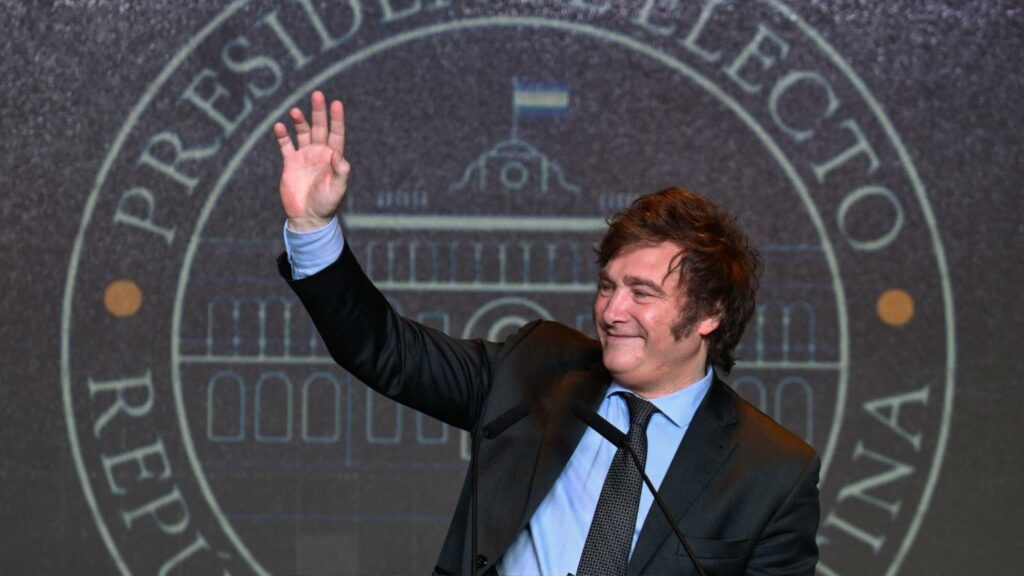
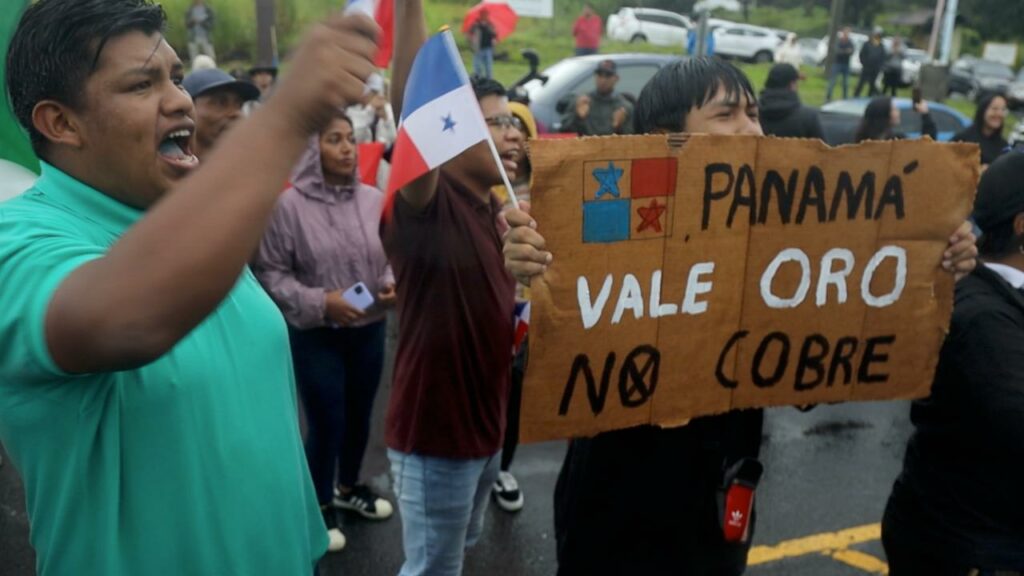
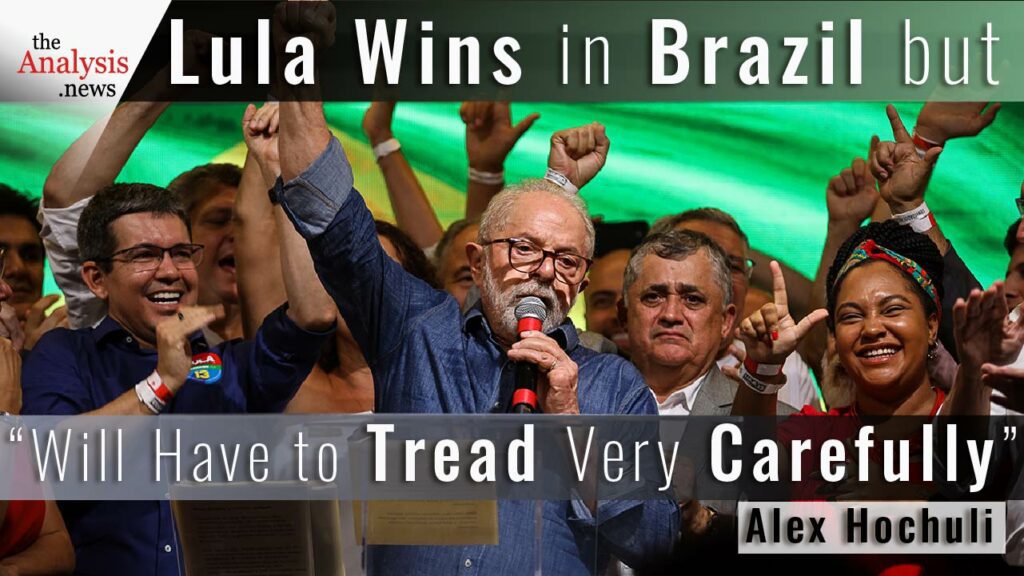
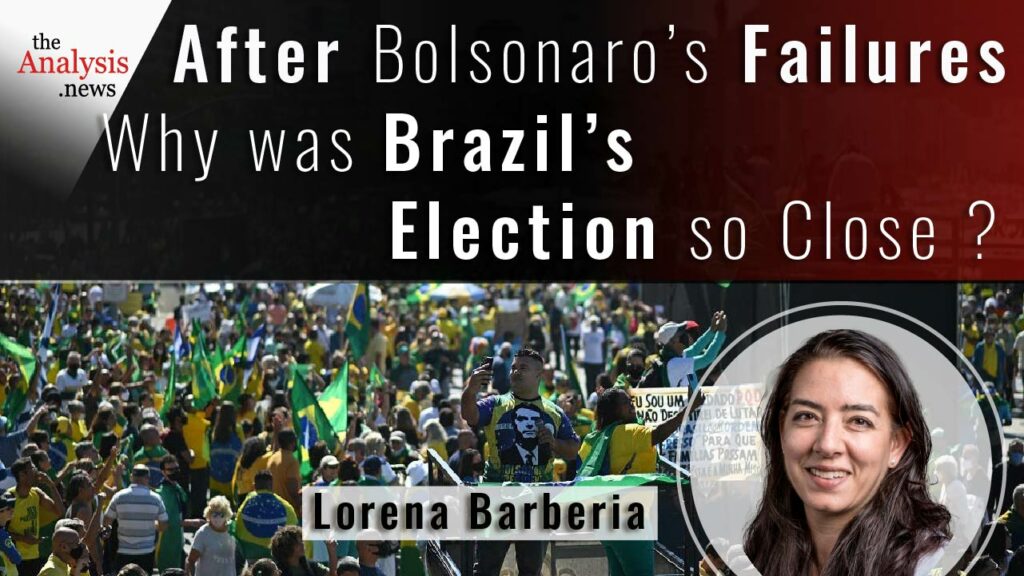

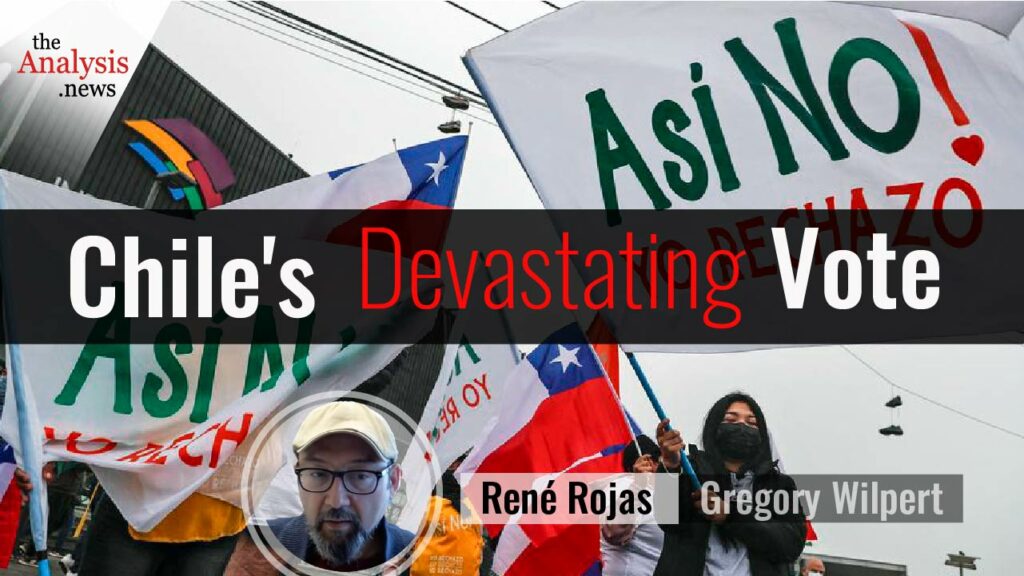

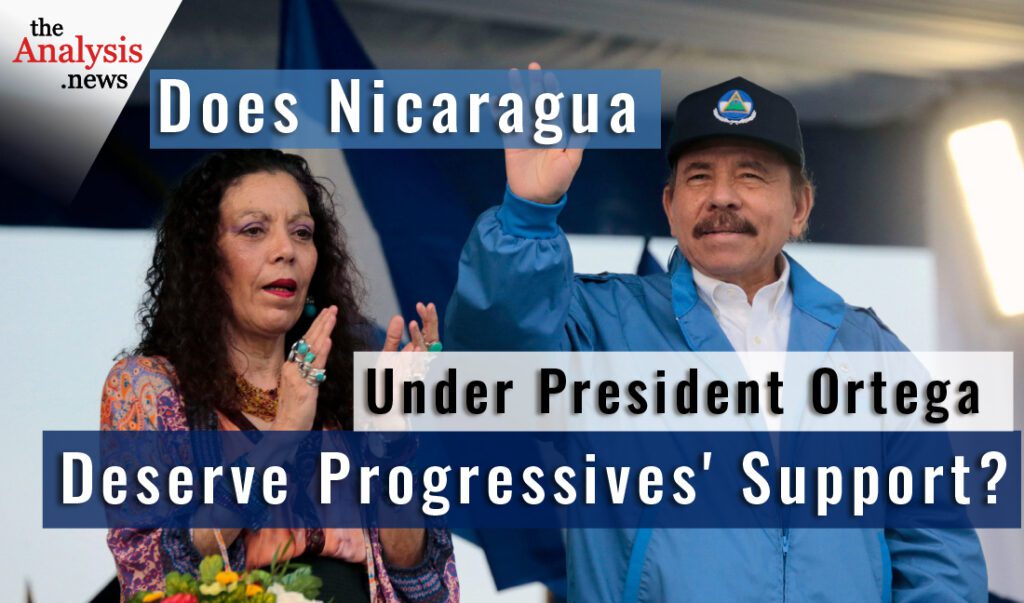
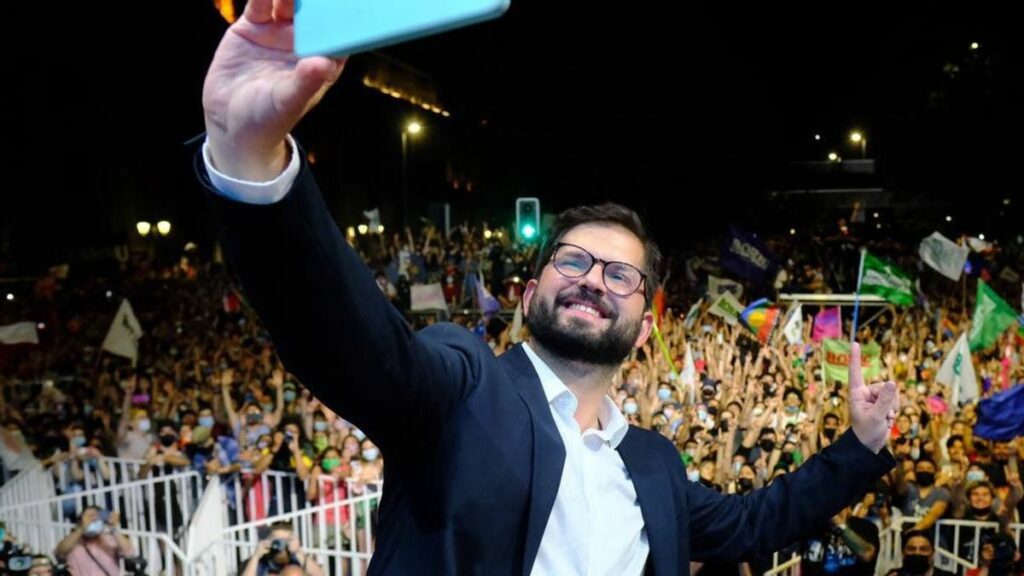
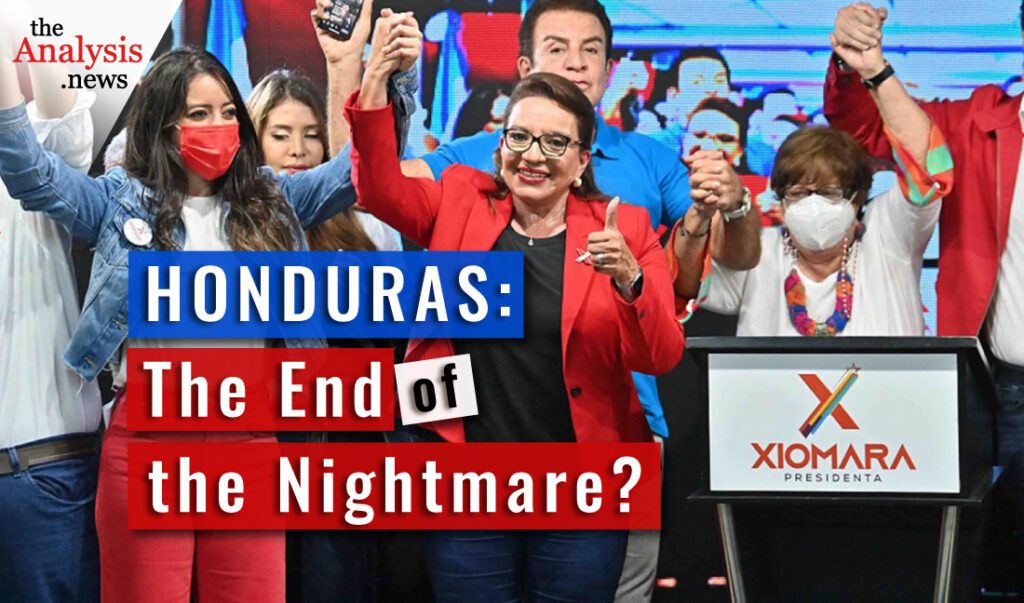
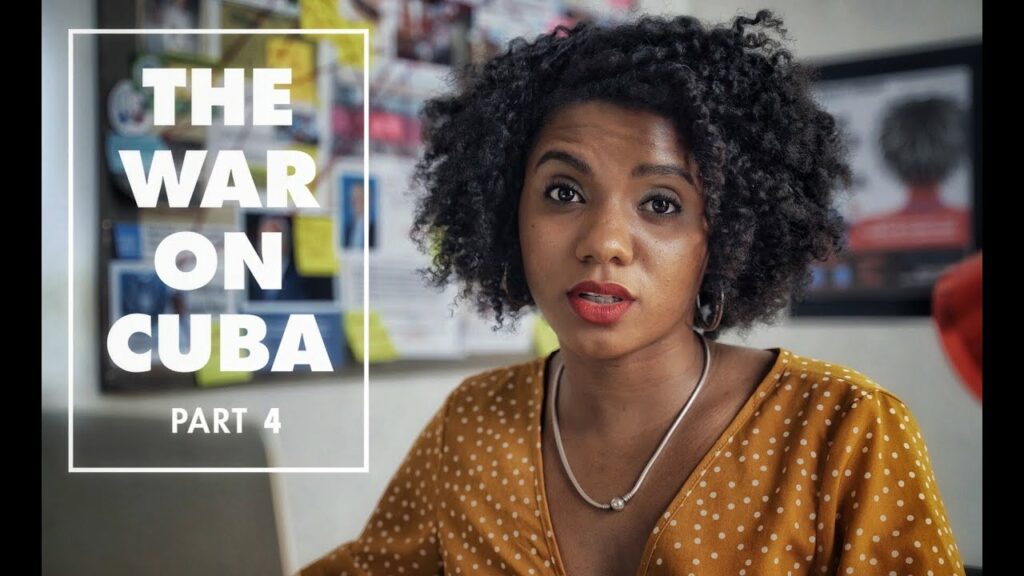
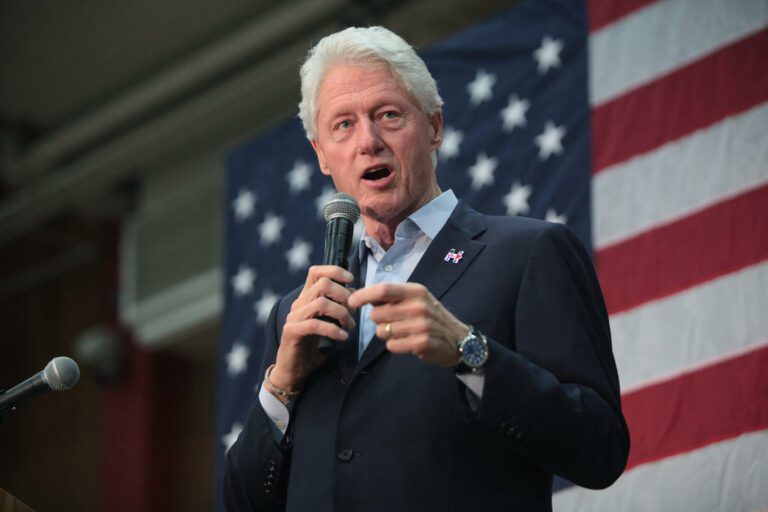
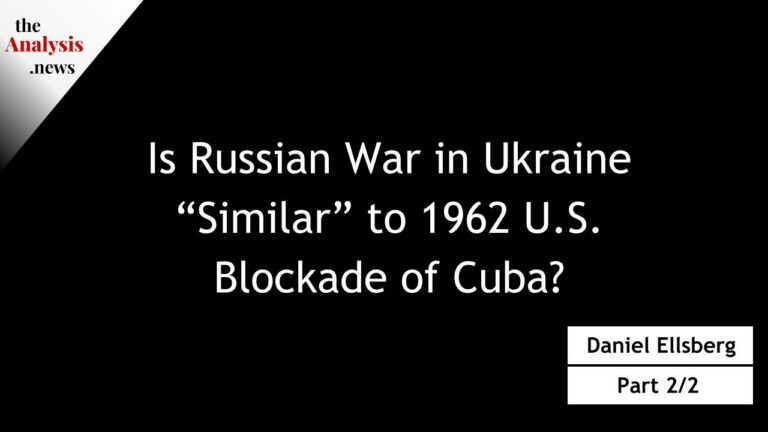


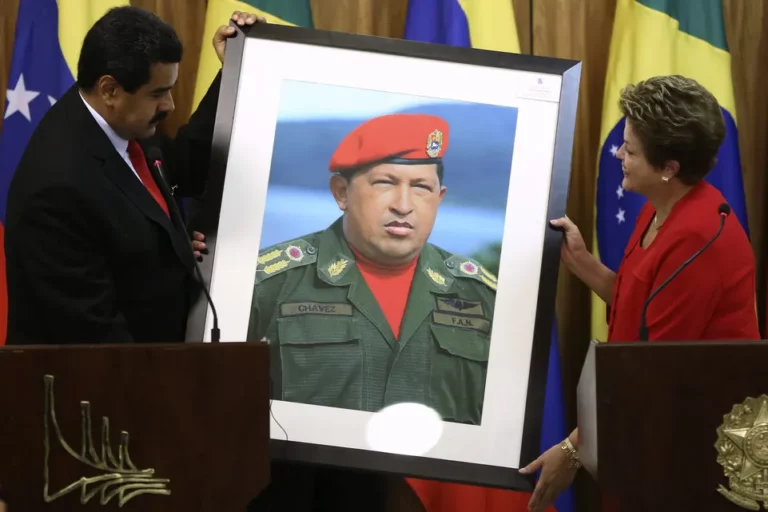
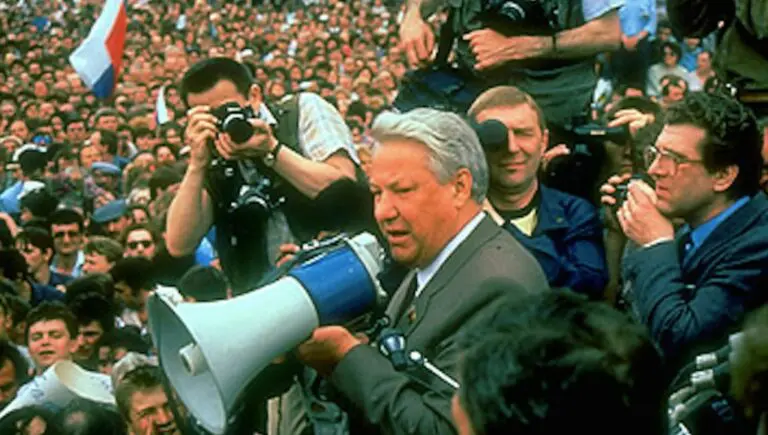
Expert commentary by the analyst. She has done her due diligence and was very informative. Bravo.
This analyst really knows the Colombian political and social reality. Bravo to Greg for bringing this timely and well grounded expert.